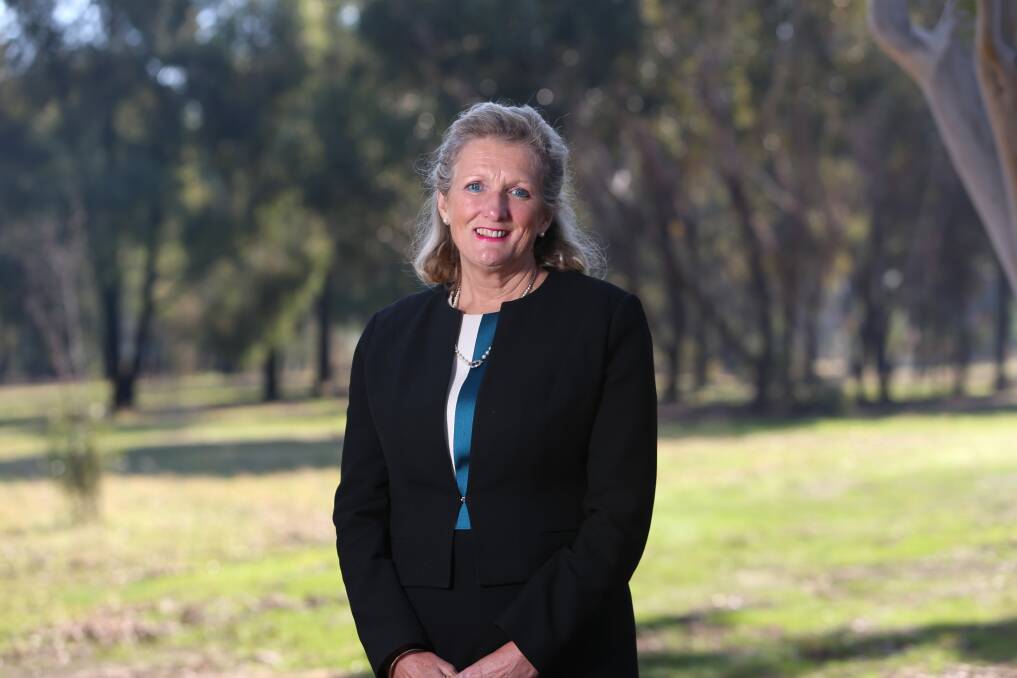
Mental health workers, carers, and people living with a mental illness have shared their experiences at the Royal Commission into Victoria's Mental Health System's community consultations in Bendigo.
Subscribe now for unlimited access.
or signup to continue reading
The Victorian government announced the commission last year, with the aim to understand the shortcomings of the current system and to establish what needs to change.
The state government said it would accept all of the commission's recommendations.
"We've been hearing what they think needs to be done through this royal commission," Commission Chair Penny Armytage said after the first session in Long Gully.
"It is a once in a generation opportunity to improve the way in which we respond to Victorians with mental health issues."
Ms Armytage said while society has made great progress in reducing the stigma around mental illness, there was still stigma present.
"There are also challenges about navigating the type of support that is needed and when it's needed by people who are experiencing mental health issues," she said.
"Sometimes that means they don't get the help at early stages in their illness or in the breadth of support that they need.
"Tragically, we hear sometimes it can lead to catastrophic outcomes for individuals and families."
A Bendigo woman, who did not want to be named, shared her experience at the community consultations.
The woman helps care for her 24-year-old brother who is living with an intellectual disability and schizophrenia.
She said his mental health deteriorated over the past 18 months, but he was unable to receive the support he needed.
"He was incredibly unwell," the woman said. "He was going in and out of episodes of psychosis and his behaviour was becoming erratic and dangerous.
"It just got worse and he didn't understand the impact on himself or on others. He couldn't articulate what he was going through.
"It is a once in a generation opportunity to improve the way in which we respond to Victorians with mental health issues."
- Penny Armytage, Chair of the Royal Commission into Victoria's Mental Health System
"When a triage service would ask if he was ok, he would say yes so then they wouldn't do anything to support him.
"The situation became more and more challenging to the point where he was a risk to others and himself."
The woman told the commission support services needed to speak to the families and carers - not just the individuals - to ensure the required help was delivered.
Her brother, who had been living in the family home when his mental health condition deteriorated, now lives in an accommodation service.
"He's doing much better but it was a very long road," she said. "To be quite honest, it's still a bit of a battle to make sure that support is retained.
"It was a challenge to find that accommodation and without the support, he won't be able to keep it.
"It's a financial burden on the rest of the family and it is a concern moving forward to make sure that we can continue that support for him."
The Bendigo woman also told the commission her experience working in the mental health sector for the past five years.
She supports people who have severe and persistent mental illnesses and links them to the services they need.
"People are often exited from services because they won't engage with the programs," she said. "But there are no assertive outreach services who can hang in there with those people.
"There are also people who are admitted into services and then discharged inappropriately while they are still unwell.
"Often family members or workers are unaware they have been discharged. The continuity of care is not always there."
The woman said while the services in Bendigo were facing increasing demand, staff numbers were limited.
"Services are quite overwhelmed across the board," she said. "We don't have enough people on the ground and that ultimately it leads to ineffective service."
Ms Armytage said the Bendigo consultations have drawn on the challenges of meeting the rising demand in the sector and how to respond to people when they need help the most.
"We've heard about those demand pressures across the system, both in the community and in the hospitals," she said. "We've also heard about some of the staff shortages and the turnover.
"There was also the job insecurities that some people feel as the result of the changes in our service systems and the day-to-day workload pressures that people are exposed to in mental health."
Ms Armytage said the community consultations have been "powerful" listening for the commission.
"These community consultations are very important for us because it gives us as commissioners the opportunity to listen first-hand to people's direct experiences of the system and their suggestions for ongoing improvement and change," she said.
"They will compliment the input we're having through written submissions and other forms of engagement."
Ms Armytage has encouraged anyone who would like to share their experiences of the Victorian mental health system to do so in a written submission at rcvmhs.vic.gov.au. Submissions will close on July 5.
The commission will deliver an interim report to the state government in November. The final report will be released in October 2020.
Have you signed up to the Bendigo Advertiser's daily newsletter and breaking news emails? You can register below and make sure you are up to date with everything that's happening in central Victoria.


